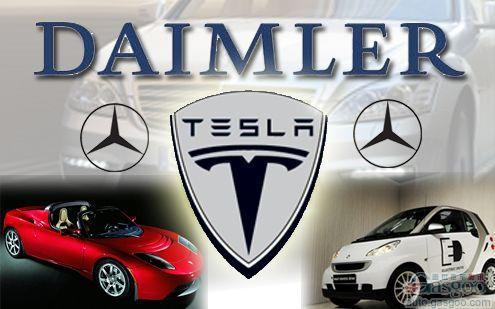(单词翻译:单击)
When shares in Daimler’s China joint venture partner begin trading in Hong Kong later this week, the listing’s sponsors are hoping that investors will be reminded of another stock that has soared by virtue of its association with German manufacturing excellence.
戴姆勒(Daimler)在华合资伙伴北汽的股票将于本周晚些时候在香港开始挂牌交易,上市保荐人希望这将让投资者想起另一只股票,因为与德国卓越制造能力的关系,该股得以大幅飙升。
For Beijing-based BAIC Motor, China’s fifth-largest domestic carmaker, comparisons with Brilliance China Automotive are flattering. Since Brilliance Auto was selected as BMW’s China partner in March 2003, its Hong Kong shares have risen more than 800 per cent.
将北汽股份公司(BAIC Motor)与华晨中国汽车(Brilliance China Automotive)相提并论或许有些高看了,北汽股份总部位于北京,是中国第五大自主品牌汽车制造商。华晨汽车集团(Brilliance Auto)自2003年3月被宝马(BMW)选为在华合资伙伴以来,其在香港挂牌的股票涨幅已超过800%。

For early investors in Brilliance Auto, the timing was perfect. The company’s manufacturing joint venture with BMW, based in Shenyang, was up and running just in time for China’s emergence as the world’s largest car market. Last year, passenger car sales in the world’s second-largest economy reached 18m units, compared with 15.6m in the US.
对于华晨汽车的早期投资者来说,与宝马的合作适逢其时。就在中国成为全球最大汽车市场之际,该公司与宝马位于沈阳的合资生产企业及时建成投产。全球第二大经济体去年乘用车销量达到1800万台,美国为1560万台。
While still trailing Volkswagen unit Audi, which got off to an earlier start in China, BMW has long enjoyed a comfortable lead over Daimler’s Mercedes-Benz division in China’s market for premium sedans. BAIC’s backers say that as Mercedes closes the gap, it too will offer investors an opportunity to cash in on the biggest motor boom in history.
宝马目前仍落后于大众(Volkswagen)旗下的奥迪(Audi),后者在华起步较早,但在中国高档车市场上,宝马一直领先于戴姆勒旗下的梅赛德斯-奔驰(Mercedes-Benz)。北汽的出资者们表示,随着梅赛德斯逐渐追上宝马,北汽也将让投资者有机会从汽车史上最大的繁荣中获利。
Priced at HK$8.90 per share — midway in the HK$7.60-HK$9.80 indicative price range — BAIC will raise US$1.4bn through the offering.
北汽IPO发行价为每股8.9港币,位于参考定价区间7.6港币到9.8港币的中间位置,预计融资14亿美元。
Daimler, which has a 12 per cent stake in the state-owned carmaker, has said it would welcome a cross shareholding arrangement with its China partner in future. BAIC declined to comment ahead of the December 19 IPO.
戴姆勒持有这家国有车企12%的股权,它表示欢迎与其中国合作伙伴在今后的交叉持股安排。北汽拒绝在12月19日正式挂牌前发表评论。
BAIC’s sales pitch, however, differs from Brilliance Auto’s in two respects. While Brilliance only has one partner and limited manufacturing operations of its own, BAIC’s IPO comes with baggage including a larger joint venture with Hyundai and own-brand operations that lost Rmb3.3bn ($537m) last year, according to Bernstein analysts.
不过北汽的卖点与华晨汽车存在两点不同。伯恩斯坦(Bernstein)分析师指出,华晨只有单一合资伙伴,自主制造业务的规模也不大,而北汽IPO还囊括其与韩国现代(Hyundai)规模更大的合资企业,以及自主品牌业务,后者在去年亏损了33亿元人民币(约5.37亿美元)。
BAIC’s partnership with Hyundai is highly profitable, with earnings of Rmb5.4bn in 2013 compared with Rmb757m from the Mercedes venture. Hyundai was the second most popular brand in China last year after VW.
北汽与现代的合作利润颇丰,2013年盈利54亿元人民币,而与梅赛德斯的合资企业仅实现盈利7.57亿元人民币。现代是中国去年第二大受欢迎品牌,仅次于大众。
The South Korean carmaker’s joint venture with BAIC has an annual capacity of 900,000 units at its main Beijing plant, and the two partners have plans to build two more factories in Chongqing and Changzhou, a city southwest of the capital in Hebei province.
现代与北汽在北京主要工厂的年产量为90万台,双方计划在重庆和沧州再建两座工厂,沧州位于河北省会保定市的西南方向。
BAIC’s relationship with Hyundai makes it more like other state-owned giants, such as Dongfeng Motor or Guangzhou Automobile Group, that also derive most of their profits from joint ventures with mass market players such as Peugeot Citroen, Nissan, Honda and Toyota. “Originally they were trying to push [BAIC] as a kind of luxury play. Brilliance would be the comparison,” says Janet Lewis, head of Macquarie’s industrials and transport research team in Hong Kong. “But investors are realising that 90 per cent of their profits come from Hyundai. A better comparison is Dongfeng or Guangzhou Auto.”
北汽与现代的关系,使其更像东风汽车(Dongfeng Motor)、广汽集团(Guangzhou Automobile Group)等其他国有汽车巨头,这些车企的大部分盈利也来自与标致雪铁龙(Peugeot Citroën)、日产(Nissan)、本田(Honda)和丰田(Toyota)等大众市场品牌的合资企业。麦格理(Macquarie)在香港的工业与交通运输研究团队的负责人珍妮特•刘易斯(Janet Lewis)表示:“起初,他们试图将北汽定位为豪华车生产商,可与华晨相提并论。然而投资者意识到,北汽90%的利润来自现代。更合适的类比应该是东风或广汽。”
BAIC is also coming to market at a time when slowing economic growth finally appears to be affecting previously impervious demand in the car sector. In November, sales of passenger cars rose just 4.7 per cent year-on-year, the slowest rate of expansion in almost two years according to the China Association of Automobile Manufacturers.
北汽赴港上市之际,中国经济增长放缓似乎终于影响到了汽车业需求。根据中国汽车工业协会(CAAM)的数据,今年11月,中国乘用车销量同比只上升了4.7%,是近两年来的最低增幅。
Year-on-year sales of domestic brands such as BAIC’s Senova passenger cars, based on SAAB technology acquired five years ago from the now-defunct Swedish car group, did slightly better last month, rising 5.5 per cent according to CAAM data. But analysts remain sceptical whether China’s state-owned domestic brands can win over drivers — or make a profit. “BAIC makes unit losses for every Senova sedan it sells,” Robin Zhu, Bernstein analyst, wrote in a note.
根据中国汽车工业协会的数据,包括北汽绅宝(Senova)在内的自主品牌乘用车的表现确实要更好一点,上月销量同比增长5.5%。但是,中国国有车企的自主品牌能否赢得车主认可并实现盈利呢?分析师依然持怀疑态度。伯恩斯坦的Robin Zhu在一份报告中写道:“北汽每卖出一辆绅宝都要亏损。”北汽5年前收购了目前已不复存在的瑞典萨博公司(SAAB),以后者的技术为基础研发并推出了绅宝。
“As Senova volumes ramp up, we fear BAIC’s domestic brand loss could increase, eroding incremental profits at Hyundai and Mercedes.”
“随着绅宝销量的增加,我们担心北汽自主品牌的亏损可能会增加,从而侵蚀现代和梅赛德斯所带来的增量利润。”
BAIC’s original selling point remains compelling. Over the first 10 months of this year, Daimler’s China unit reported a 30 per cent rise in Mercedes sales to 226,000 vehicles, putting it on track to sell 300,000 cars next year as outlined in a three-year turnround plan.
北汽起初的推广卖点依然很有说服力。今年头十个月,戴姆勒中国业务报告,梅赛德斯销量增长30%达到22.6万辆,这使其有望实现三年扭亏计划中关于明年销售30万辆的目标。
BAIC and Daimler have rapidly expanded their Mercedes dealership network to take advantage of growing demand in smaller cities. Their venture is also doing well in larger cities where strict limits on new licence plates to curb congestion and pollution have capped the size of the local market.
北汽和戴姆勒已迅速扩大了梅赛德斯经销网络,以利用中小城市汽车需求不断增长的趋势。双方合资业务在较大城市也表现不错,为了减少拥堵和污染,这类城市对发放新牌照有严格限制,从而限制了当地市场的规模。
Such limits are effectively turning cities such as Beijing and Shanghai into replacement markets, which tend to favour premium brands as existing drivers upgrade their vehicles.
北京、上海等大城市实行的限制措施,实质上使它们成为“换代型市场”,这往往更有利于高端品牌,因为现有车主会倾向于换更好的车。


